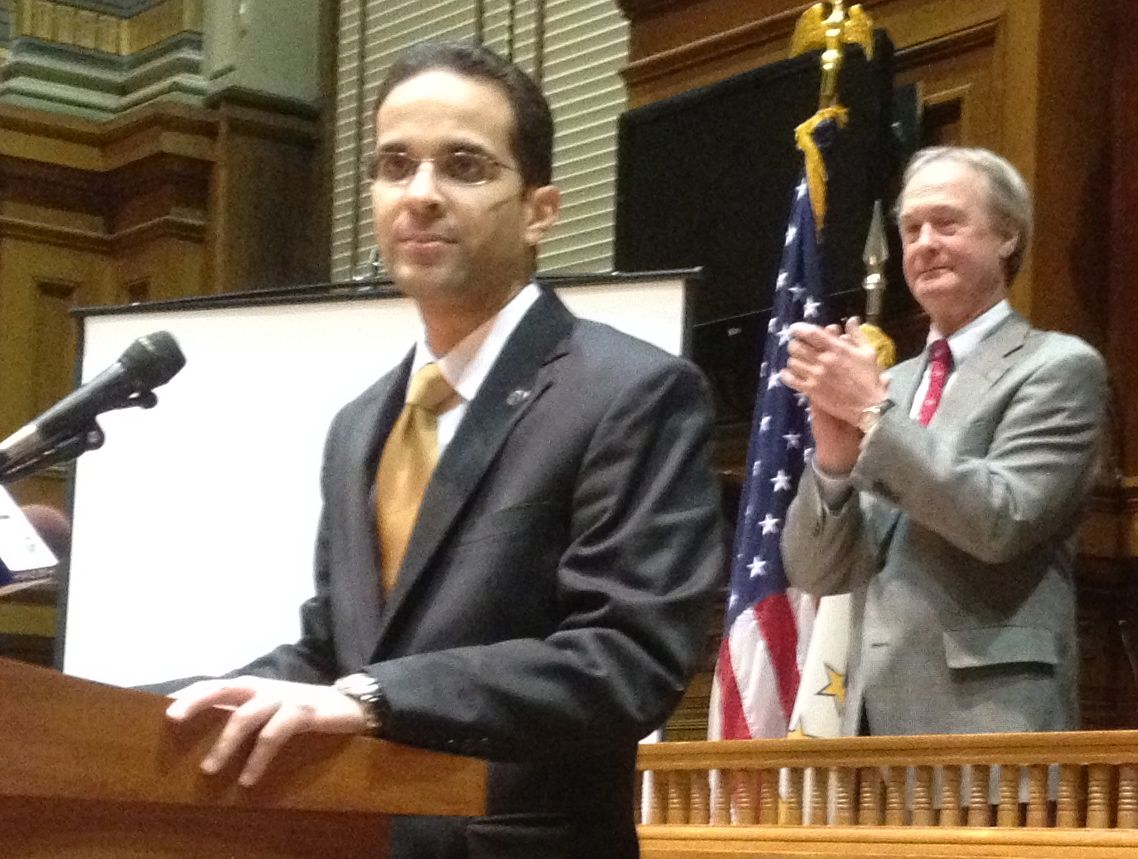
Can someone with a pension be an objective judge of whether it’s ok to cut someone else’s pension? The state is making an argument that Judge Sarah Taft-Carter is compromised and can’t consider issues concerning the 2011 state pension overhaul because her son and mother receive checks from the state system.
Seems worth reviewing the judicial pension system then, doesn’t it?
The state’s judges are the recipients of quite, um, healthy pension benefits. After 15 years, a judge can be eligible to receive his or her full salary as a pension, though if they were appointed after 2009, it will only be 80%. Seems plush, no?
The standard rejoinder is that the judges have their own system, and it’s well funded, with a funding ratio of 78%. Compared to the state employee and teacher’s system’s 48%, this seems the pink of health, so I guess it’s ok to continue to treat our judges as royalty, deserving pensions far better than anyone else.
The reality, as usual, is quite different. For a long time, pensions were just paid out of the current budget. It was in the 1960s and 70s that governments changed how they saved for pensions, and started socking away money for them. When those plans were established, employees who had not paid into the system were accepted into it, to relieve the budgets from their pension payments. You could think of this as the original sin of the pension systems, and so they began life behind the eight ball, always hoping to catch up to full funding, but never able. (Of course, after that original sin, there were plenty more, with governments skipping payments, making overly rosy assumptions about the future, using idiotic accounting rules, and so on. We are leaving all those aside for this post.)
Until 1989, when the state’s judges were incorporated into the state pension system, their pensions, like other state employees before them, were paid directly out of the current budget. However, unlike the state system, when the judicial system was created, those judges were not covered. Those judges paid nothing toward their pensions, and their retirement checks continue to come straight out of the state’s budget to this day, about $6.3 million per year. (See here, look at the various line items that either read “Pension” or “Salary for retired justices.”)
These judges were hired before there was a judicial pension system, so they aren’t covered by that system. But lots of state employees were hired before there was a state employee pension system, and their system was forced to cover them. If these “pay-as-you-go” judges were included in the judicial system, the way other state employees were included in theirs, I estimate the funding ratio of the judicial pension system would be down in the 35% range, far worse than the state employee system.
So this is why all our judges are compromised on the issue of pensions. Their system is far cushier and — by any real measure of how much their pensions cost the state budget — in far worse shape than the state employee pension system. Fortunately for them, the accounting rules in place mask the condition and the number of judges is relatively small. But this is a slender branch on which to place all one’s hopes for retirement. No judge can be certain that someone with more clout than me won’t eventually notice this. Any precedent established for the state employee system can and will be used against the judicial pensions — eventually.
In other words, no judge in Rhode Island can be impartial about the pension case currently before Sarah Taft-Carter. They all have pensions, and because it’s a small state, etc etc, virtually all of them have relatives in the state pension system. On the other hand, they may all be uniformly compromised, but they are likely not uniform in their resistance to public pressure. The state may be counting on seeing if they can be bullied into going along by public and loud accusations of bias and long hearings about her impartiality. That’s why, from the state’s perspective, a Judge Taft-Carter who has been amply abused in the press may be the best possible jurist to consider this case.





















